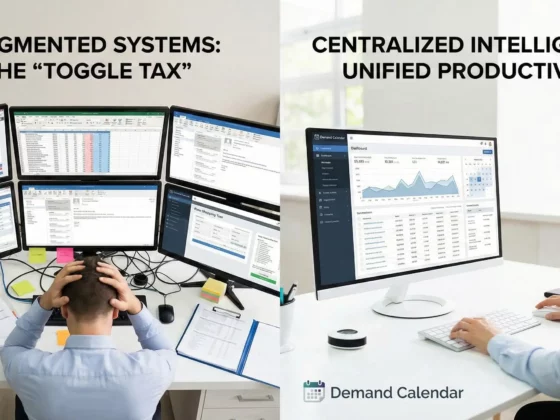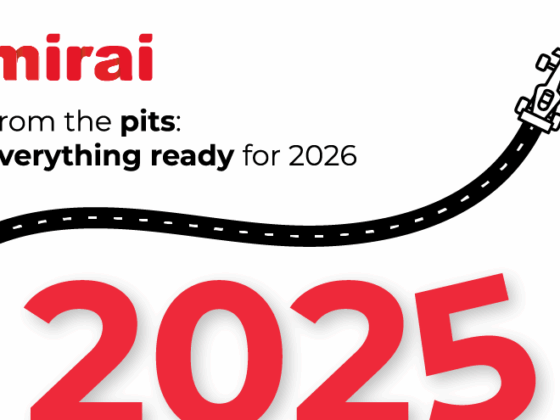AI for search, Amazon’s beta and how can hotels prepare for that? Hint, USP. Airports and experience design, next level stuff. What is the future of online advertising? That’s easy.
Hello,
Last week Advertising was the thing, this week a lot of AI stuff became top spot and I shared some opinions on the merge of the two. And for the first time, I totally missed the fact that Apple had a launch event.
Podcast: I was invited on the Hospitality Daily Podcast and spoke about technology in hospitality, some thoughts on what wont change in hospitality, and why I co-founded 10minutes.news.
Best, Martin
About me: I'm a fractional CMO for large travel technology companies helping turn them into industry leaders. I'm also the co-founder of 10minutes.news a hotel news media that is unsensational, factual and keeps hoteliers updated on the industry – also it is the most read hotel newsletter in Europe. See the international edition of the newsletter and subscribe to it here. I’m also a co-founder of Klairhaus, a premium office accessories brand that makes products with particular care for craftsmanship and design.
Support the newsletter, treat yourself to great office gadgets.
Guest Experience in Airports
In speaking to an executive at Paris Airports, I was pleased to see how serious they are about guest experience. Over lunch he was telling me how they obsess about the time it takes for international arrivals to get through customs and that they’re constantly working with the officials on finding ways to optimize it. They measure the number of minutes it takes to get through and try to keep is under a certain max time. During COVID, they spent a lot of time to review and re-architecture flows. I’ve experienced parts of CDG airport to be one of the smoothest and most pleasant airport experiences (it used to be one of the worst). I’m impressed by how much work is being done to analyse and improve the guest experience. Hotels don’t have the scale that would justify LIDAR tracking, but they also don’t need it. However obsessing about smoother guest experience is something we can get better at.
FUTURE OF AIRPORTS [WHITE PAPER]
Google AI Overviews
The integration of Google AI Overviews into search results is impacting the visibility of news publishers’ content. This isn’t really affecting hotels yet, but as the overviews become more widespread it will. This is also an opportunity for hotels to get more visibility as search will evolve (see also Amazon Rufus below). We don’t know how the ranking will work, but what is sure is that hotels need to have their USP clearly set and promoted. If you’re the best quality hotel in the lower Financial District, and your guests confirm it frequently in their reviews, it will be your best guarantee to capture that demand. Generic keywords haven’t been a thing for a while and with AI, they’re going to be even less of a thing.
GOOGLE AI SEARCH VISIBILITY
Mismanagers
Following last week’s article on Founder Mode, I stumbled on this article which has a pretty strong view on how companies fail due to mismanagement by the wrong type of executives. The topic is full of opinions and thoughts. I have seen at times how “professionals” come in who know all the jargon and acronyms, install the right systems and processes and appear to know their stuff. Only to see a formerly productive team turn into a bloated un-productive one. My own experience has taught me that it is easier to teach theory to someone who can execute than to teach how to execute to someone who knows theory. But I’m sure this is new to nobody.
MISMANAGEMENT IMPACT
Amazon’s Rufus, changing shopping
Amazon is testing a new shopping assistant. Conversational assistant that recommends the right products for you based on your conversation. Amazon has the data, they have the reviews, the pricing and the availability and with that they could recommend the best desk brush for people who would rather have craftmanship than cheap (plug). This is undoubtedly coming to hotels as well. If not released yet, OTAs will be releasing this shortly. But how will that impact rankings? It is going to be a whole different story. What is probably not going to change is that guest reviews will become even more important in one’s ranking.
AI SHOPPING ASSISTANT
Making a perfect billboard
Considering the cost of a traditional billboard, there’s a lot of research that goes into making them as efficient as possible. Not the same can be said of banner ads. Yet I believe they’re essentially the same type of advertising. Even if we’ve been educated that the only metric that counts is clicks, banner ads have much more value in being a billboard than to generate clicks. Understanding what makes a billboard efficient then, would be a great place to learn how to make excellent banner ads. Here’s a great piece of research for anyone working on their next big ad campaign.
DIGITAL POSTER RESEARCH and GREAT AD INSPIRATION
THOUGHTS:
The future of advertising
Advertising has gone through a few “revolutions” over the last few centuries. Ever since there was a choice greater than one for an item, advertising became a necessity.
The most recent of these revolutions was being able to advertise based on intent. Meaning someone types something in a search engine and a relevant ad was shown. This changed a lot of things – before that there was mostly mass advertising and hoping some of it would reach the right audience.
Before that there were major changes with TV ads, and before that color ads, and so forth. I wrote an opinion piece about it some years ago, – which really needs an update.
The problem with intent was that it never solved the problem of inspiration, when it did, it did it pretty bad. If you’re searching for a car and being advertised a new kitchen (because maybe you were also refurbishing you kitchen) it was a pretty bad experience and expensive for the advertiser.
Social media helped to some extent in that it was a more passive experience and being suggested a new kitchen was more acceptable. But for very long it had a pretty low conversion rate and return-on-ad-spend compared to search and intent.
This caused a new problem, of marketers only working on performance (search) ads because the returns were higher. But that was like only picking the low hanging fruit and letting the rest rot. One CMO likened performance marketing to a sugar rush and brand marketing to protein. It is a pretty good analogy.
But lately, much thanks to the huge amount of data that platforms have on their users, there’s a new way of advertising that is rapidly going to become the main way of advertising. This is AI based, or algorithmic-targeting based advertising.
The super-simplified version of how it works is, the advertiser puts the end goal they want to achieve, such as brand awareness or generate sale –a slider that goes from brand awareness at the top, to sales made at the bottom would be great. Then one puts a budget. Some product data and generic assets. And the platform takes care of the rest.
The lower one goes on the scale (sales) the more expensive the cost per action. But one sees a faster return. The higher one goes on the scale the cheaper the action, but the slower the return.
This is the next “revolution” in advertising. Letting the machines do the work, identify the user’s past browsing, look at how others have behaved (cohorts) and show you the ad at the right times.
It is the best of both world, intent and inspiration. And can be done at scale.
And with the number of advertising channels being created (everything is becoming an ad platform these days) it is only a matter of time before things start to aggregate and get managed more coherently.
So next time you’re shopping on Target – the system will know that people like you are looking for a trip to a new place in the sun, and could suggest a holiday in Rio, Cape Town, Melbourne or similar. Which is better than waiting for someone to type “holiday in Rio”, since that is mostly a question of logistics rather than new ideas.
And maybe this can help spread tourism more evenly across the world.










